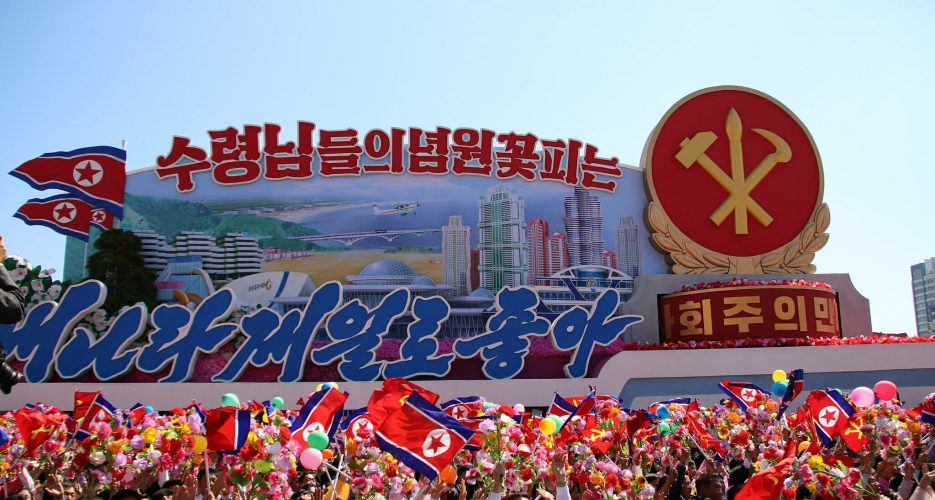It is Juche year 101 in North Korea. But while Juche is supposed to be a philosophy of self-reliance and independence, the reality is that North Korea has rarely been self-sufficient economically. Kim Il Sung was a master salesman, able to play off the Soviet Union with China for aid and subsidies while retaining a great deal of independence. But once those sources dried up in the early 1990s, the North Korean economy went into a tail spin. And with a U.S. embargo imposed since 1950 and successive waves of trade sanctions, the North Korean Juche economy has barely limped along, sustained only by Chinese life support and international humanitarian aid.
When ideals don't match reality, human inclination is to rationally modify one's behavior and thinking. Indeed, following the end of the Cold War, there were many examples of former communist nations implementing or adopting market capitalism. It didn't take long for these countries to adapt to new realities and knowledge, turning their previously closed central planning systems into open market economies. After initial shocks in their transition, a majority of these former communist countries have grown substantially. This is especially true with North Korea's former benefactors Russia and China. This is also true with Vietnam and others.
It is Juche year 101 in North Korea. But while Juche is supposed to be a philosophy of self-reliance and independence, the reality is that North Korea has rarely been self-sufficient economically. Kim Il Sung was a master salesman, able to play off the Soviet Union with China for aid and subsidies while retaining a great deal of independence. But once those sources dried up in the early 1990s, the North Korean economy went into a tail spin. And with a U.S. embargo imposed since 1950 and successive waves of trade sanctions, the North Korean Juche economy has barely limped along, sustained only by Chinese life support and international humanitarian aid.
When ideals don't match reality, human inclination is to rationally modify one's behavior and thinking. Indeed, following the end of the Cold War, there were many examples of former communist nations implementing or adopting market capitalism. It didn't take long for these countries to adapt to new realities and knowledge, turning their previously closed central planning systems into open market economies. After initial shocks in their transition, a majority of these former communist countries have grown substantially. This is especially true with North Korea's former benefactors Russia and China. This is also true with Vietnam and others.
Become a member for less
than $5.75 per week.
Unlimited access to all of NK News: reporting, investigations, analysis
The NK News Daily Update, an email newsletter to keep you in the loop
Searchable archive of all content, photo galleries, special columns
Contact NK News reporters with tips or requests for reporting
Get unlimited access to all NK News content, including original reporting, investigations, and analyses by our team of DPRK experts.
Subscribe now
All major cards accepted. No commitments – you can cancel any time.












